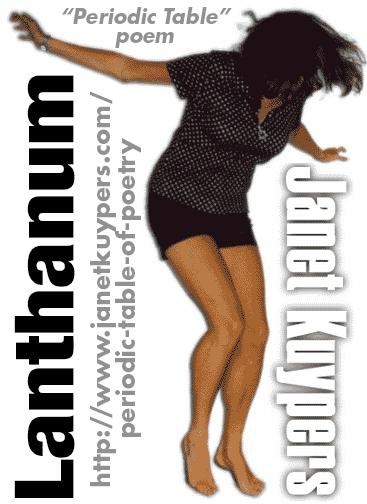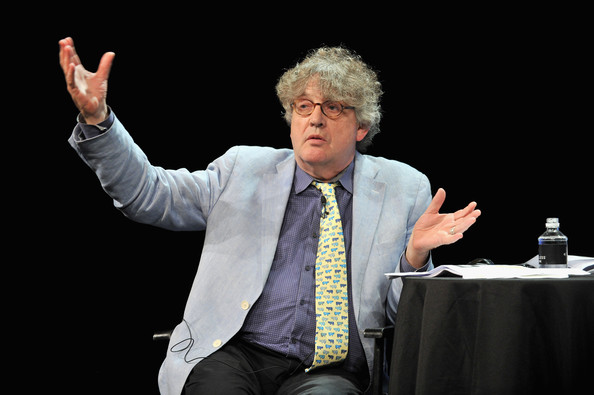Lanthanum
Janet Kuypers

(poem from the “Periodic Table of Poetry” series, #57, La)
6/27/14
When I went to the after party
of a recent Chicago live play,
an actor from the play
asked me if I was an actor.
I said no, I write,
I run a poetry open mic,
occasionally do features,
and the actor told me,
then you are an actor.
And my story has not
been produced as a play,
and directors aren’t
knocking down my doors
to offer me a starring role.
At my open mic
I applaud other readers,
collect money for features,
and although I perform
in a show sometimes,
a day or two after my show
I am quickly forgotten,
and I still,
otherwise,
seem to slip into the woodwork.
#
You know, I was thinking about it:
if you look at the Periodic Table,
you know elements are grouped
by weight and therefore by properties,
but there’s this block of elements
sticking out at the bottom of the Table.
It’s like scientists didn’t know
what to do with some of these elements,
so called them Lanthanides,
from the Greek word “lanthano”
(meaning “to escape notice”),
and then moved them out of the way
on the Periodic Table.
And that first element in the series
has the name from the series, Lanthanum,
and maybe it is like an actor
who appears in film after film
always portraying different roles
but not often taking the lead. ..
Lanthanum’s joined with metal elements
to make them stronger, because
even when added to lenses
or the accuracy of radio carbon dating,
everything is sharper, stronger and more accurate —
Lanthanum’s supporting role
makes everything stand proudly
in the lime light.







